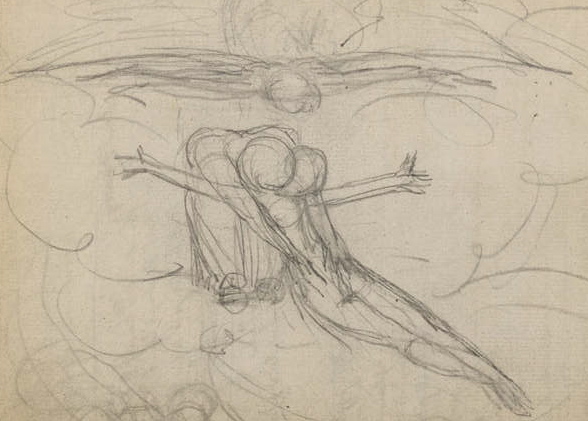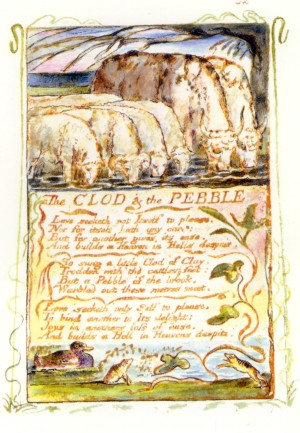 ‘Have you an infant child? … You have no need of amulets or incantations, with which the Devil also comes in, stealing worship from God for himself in the minds of vainer men. Give your child the Trinity, that great and noble Guard’. – Gregory of Nazianzus, Oration 15, 365.
‘Have you an infant child? … You have no need of amulets or incantations, with which the Devil also comes in, stealing worship from God for himself in the minds of vainer men. Give your child the Trinity, that great and noble Guard’. – Gregory of Nazianzus, Oration 15, 365.
‘Worship the Trinity, which I call the only true devotion and saving doctrine’. – Gregory of Nazianzus, Oration 43, 405.
‘The impotence of which many complain in the Church of the hour is not unconnected with the relegation of the doctrine of the Trinity to a theological appendix, even when it is not denied … And, on the other hand, the joy and the up–lifting that we have in meditating on the revealed depths of the Triune God is part of the blessedness which is the Church’s consummation; and it gives us that self–possession of the holy which both inspires and preserves us among our best activities for man’s weal. Such a doctrine, full as it is of difficulties for mere thought, when it is taken with serious depth by a Church of faith answers more difficulties than it creates. And such truth should be matter of adoration rather than criticism to an intelligence which is not merely exercised in speculation, but itself converted to the manner and movement of the Eternal Mind as it is revealed in Christ’. – PT Forsyth, The Principle of Authority, 230-1.
‘Not although God is Father and Son, but because God is Father and Son, unity exists [in the Godhead]. So God, as He who establishes Himself, who exists through Himself, as God in His deity, is in Himself different and yet in Himself alike. And for that very reason He is not lonely in Himself. He does not need the world. All the riches of life, all fullness of action and community exists in Himself, since He is the Triune [One]. He is movement and He is rest. Hence it can be claimed to us that all that He is on our behalf – that He is the Creator, that He has given us Himself in Jesus Christ and that He has united us to Himself in the Holy Spirit – is His free grace, the overflow of His fullness. Not owed to us, but overflowing mercy!’ – Karl Barth, Dogmatics in Outline, 44.
1. God is love! The Father is love and the Son is the Son of His love,
The Son in this true love wants only to do all that pleases the Father above,
The Spirit of love from the Father above pours out all of this love in the Son—
So the Father, the Son and the Spirit all love and together in love they are one,
Yes, the Father, the Son and the Spirit all love and together in love they are one.
2. God is love! A river of fire that can never be quenched or run dry,
A love full and free that for eternity could not be just kept up on high:
The Father, the Son and the Spirit all love and together in love they are one,
And the love was spilled over to make all creation so others could join in the fun—
Yes, the love was spilled over to make all creation so others could join in the fun!
3. God is love! Now look at that love in the earth and the sky and the sea!
All of God’s creatures in wondrous profusion all being what they’re meant to be:
The plants and the animals, fish and the birds, and the wonderful woman and man.
All in order and harmony, working in love to partake in God’s glorious plan!
Yes, in order and harmony, working in love to partake in God’s glorious plan.
4. God is love! And in that great love which God had before all things began,
The Father of love with the Spirit and Son set out on this glorious plan:
To make a new Heavens and Earth and a Family full of the fire of His love
Where the children of God in the Spirit and Son would be one with the Father above.
Yes, the children of God in the Spirit and Son would be one with the Father above.
5. God is love! And sure of that love He created in love you and me
So whatever happened His love would prevail and we still could His Family be.
In spite of God’s love and against His goodwill we determined from God’s love to stray.
So then through all the pain God’s love could come again in a deeper, more wonderful way.
Yes, then through all the pain God’s love could come again in a deeper, more wonderful way.
6. God is love! And through all the ages of sin and of shame and of fear
God’s judgements on evil and words of His grace made all of His purposes clear:
To raise up a people to honour His love and declare all His praises on high
Till the children God promised to Abraham’s offspring outnumber the stars in the sky—
Yes, the children God promised to Abraham’s offspring outnumber the stars in the sky.
7. God is love! And when the time came as foretold in God’s glorious plan
The Son of His love from the Father above became everlastingly Man:
Poured all of Himself into our humble flesh so with us He would ever be one
As the brightness and image and fullness of God in the Father’s beloved only Son—
Yes, the brightness and image and fullness of God in the Father’s beloved only Son!
8. God is love! Messiah has come and God’s glory shines out from His face
As Christ by the Spirit goes driving out evil and pouring out grace upon grace
Till hung on a cross and abandoned by all, bearing all of the guilt of our sin,
There He glorified all of the love of the Father to bring all the Family in—
Yes, He glorified all of the love of the Father to bring all the Family in.
9. God is love! And out of the darkness God causes His brightness to shine,
Gives life to the dead and raises them up by the power of His Spirit divine.
He raised up Christ Jesus and lifted Him up to the heavenly places above
To make Him the firstborn of many such children redeemed by the power of His love.
Yes, to make Him the firstborn of many such children redeemed by the power of His love.
10. God is love! And see now His people forgiven and made all His own,
And see now Christ Jesus as Lord over all bringing everything up to His throne!
The Spirit is given, the word is sent out, earthly kingdoms now tremble and fall.
And the children stream in through the heavenly gates for the Father to be all in all—
Yes, the children stream in through the heavenly gates for the Father to be all in all!
– Martin Bleby, New Creation Hymn Book Volume 2, 281
The Painting: William Blake’s, ‘The Sketch of the Trinity’. God the Father, under the wings of the dove-like Holy Ghost, accepts the Son’s offer to give his life for man. The figure of Satan hovers below the clouds. Image taken from Notebook of William Blake. Originally published/produced in England; circa 1787-1818.



